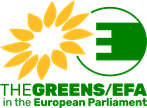“Vuosituhattavoitteiden määräaika vuosi 2015 lähestyy ja meidän pitää käyttää nyt tämä tilaisuus varmistaaksemme, että vuoden 2015 jälkeistä aikaa koskevat linjaukset huomioivat myös vammaisten henkilöiden oikeudet ja tarpeet”, Hautala vetosi puhuessaan YK:n korkean tason vammaisia ja kehitystä käsitelleesäs kokouksessa New Yorkissa 23.9.2013.[:]
***
Development minister Heidi Hautala’s speech at the High-level Meeting on Disability and Development in New York 9 September 2013.
Check against delivery
First of all, thank you to UN General Assembly President for organizing the meeting, and to Tunisia for opening it.
Millennium Development Goals (MDGs) have played an important role in uniting governments, international and regional organizations and grassroots level actors in promoting human development, by decisively acting against poverty, hunger, disease, and environmental degradation.
Very important achievements have been made during the last 13 years. However, inequalities between and within countries remain a major challenge.
Experience shows that issues not explicitly specified on an internationally agreed agenda risk becoming ‘blind spots’ when policies are designed, budgets allocated, and strategies for monitoring and reporting drawn up.
Focusing on national averages may contribute to the reinforcing of structural inequalities and social exclusion.
The Millennium Declaration recognized the collective responsibility of States, to uphold human dignity and to promote the full enjoyment of human rights by all. States also pledged to pay special attention to the most vulnerable and excluded.
Nonetheless, persons with disabilities were not mentioned in the eight MDGs, or their corresponding targets and indicators.
Approximately one in seven of the world’s population – over one billion people – are persons with disabilities. The adoption of the
Convention on the Rights of Persons with Disabilities in 2006 was an important step in ensuring equal enjoyment of human rights and fundamental freedoms by persons with disabilities.
Since then, significant improvements have been made in terms of laws, policies and disability-inclusive development strategies. But many gaps between policy and practice remain.
As the 2015 deadline for the MDGs approaches, we are discussing the new development framework that will build on their achievements. We should seize the opportunity now, to ensure that the new framework will be inclusive, and that it will take into account the rights and needs of persons with disabilities.
Reduction of inequalities is one of the central challenges of the post-2015 agenda. Leaving women, men, children, indigenous peoples, minorities or persons with disabilities outside development efforts is not only a denial of their human rights. It also reduces the contributions that these individuals can make to economic and social development.
Focusing on income disparities alone is insufficient. Non-discrimination and equality have to be reflected throughout the Post 2015 Agenda. Development cannot be sustainable unless we address the root causes of exclusion, and inequalities in access to opportunities, services and resources. Inclusion and accessibility are key elements.
We need to promote effective and meaningful participation, accountability and equality, while building capacities and knowledge to overcome exclusion, marginalization and discrimination in all spheres of society. This equals taking a human rights based approach to development.
In accordance with our international commitments, we need to promote the inclusion of the rights of persons with disabilities in national legislation, policies, plans of action and strategies. Persons with disabilities must be included in any development framework agreed upon in 2015, including its goals, targets and indicators.
This cannot be achieved without the effective and meaningful participation of persons with disabilities and their representative organizations. This is one of the guiding principles in Finland’s development policy. I am pleased that later today there will be an opportunity to hear from representative organizations, broader civil society and the private sector.
Resources are also needed. In this regard, I am very glad to announce that Finland will be able to further strengthen its support to promoting the rights of the disabled people. With the additional finance that we will be providing to UNPRPD, our total support this year will reach well over 2 million US dollars.
I am very pleased to be here with you today and look forward to hearing your comments on what measures and actions could be taken, and what specific entry points there might be for guaranteeing an inclusive global development agenda.
I hope that by the end of this session we have some concrete proposals on how to move forward.




